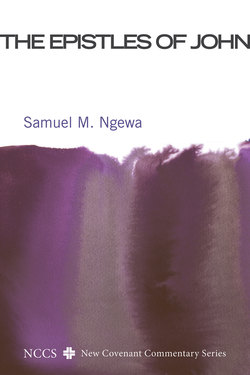Читать книгу The Epistles of John - Samuel M. Ngewa - Страница 7
На сайте Литреса книга снята с продажи.
Preface
ОглавлениеOn September 1, 2017, the Chief Justice of the Republic of Kenya, David Maraga, prefaced the decision of the Supreme Court of which he chaired with the words, “The greatness of any nation lies in its fidelity to the constitution and adherence to the rule of law and above all the fear of God.”1 He then went on to tell the nation (Kenya), and the world, that the presidential election held in Kenya on August 8, 2017, was not conducted according to the rules and so was to be repeated. Nullification of elections at that level is rare,2 but for Chief Justice Maraga and the majority of his team of judges, their action was justified because the set standards must be met.
There is a kingdom above all nations of the earth, and the ruler of that kingdom is God himself. It is he who created all things and all rulers of nations govern on his behalf. He sets different ones on the throne and removes them as he wills. Those who belong to this kingdom are called believers because they have certain truths that they believe in, with the highest truth being that God has sent a Savior into the world whose name is Jesus Christ. Members of this kingdom are also called children of God, and as such they have God-given standards they must live by. Today, they are located all over the world but this is the outcome of what began in Jerusalem, on the day of Pentecost, and then spread outwardly until the ends of the earth were reached, and are still being reached. Their constitution is the Bible.
The Epistles of John were written to such members of the kingdom of God, most likely located at Ephesus or its vicinity in Asia Minor. The message of the first letter centers on the need to live a life that reflects God’s nature as light and love, and to firmly hold on to the truth that Jesus is the Christ come in the flesh. The second letter also lays emphasis on the exercise of love and correct belief as to who Jesus is. The focus of the third letter is hospitality, especially to those traversing regions to proclaim the good news of salvation in Christ. Whether addressing matters of belief or practice, the central issue is: What is it that should characterize children of God? Relating this to the words of Maraga quoted above, but now applying to the kingdom of kingdoms, we can say, “The maturity of a believer lies in the soundness of his or her beliefs and the sincerity of his or her practice.” This is what John seeks to advance in the lives of his readers. The same test applies to us also, no matter our social status, as we live in our corners of the world in the twenty-first century.
In this commentary, therefore, the meaning of the biblical text will not be an end to itself. Every effort will be made to move from exegesis to application, as may be necessary. This, however, will be done in a general manner because the needs of the different locations where God’s children live in are varied. In any case, the overall point of application is that we who are believers must rise up to the occasion and face all the challenges of our day as we relate to our God who is light, relate to other believers who are our spiritual brothers and sisters, reach out to bring others (unbelievers) to the wonderful fellowship in the family of God, and remain true to the teachings of Jesus to us, through the apostles.
1. The writer of this work witnessed the reading of the judgment personally, and the same was carried by the newspapers the following day. The same court gave a full verdict on the matter on September 20, 2017. While the majority of judges focused on the ethics of the election (arguing that it matters how one gets the numbers), the minority focused on the numbers that had been announced earlier. The center of disagreement was whether quality takes preeminence over quantity or not. The Epistles of John raise the same question, with a clear answer. Hopefully this work will bring some of this out, as a general principle for Christian living.
2. Nullification of a presidential election had never happened in Africa before this, and in the world only a few countries, like Maldives and Austria, had done it (Peter Kagwanja, Kenyan Sunday Nation, September 1, 2017, 29).
